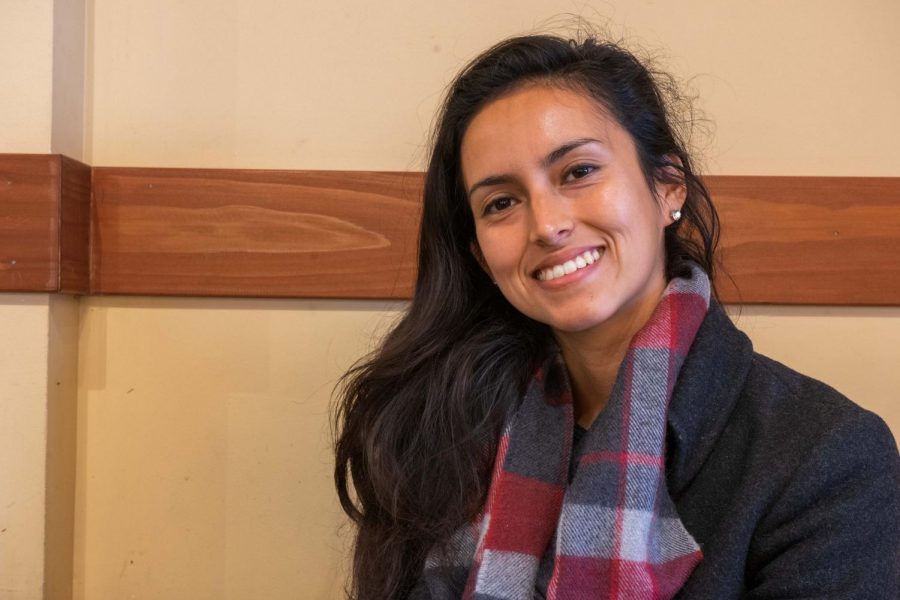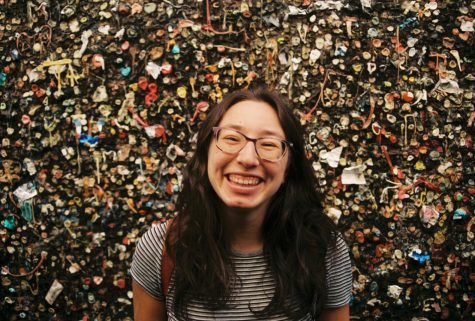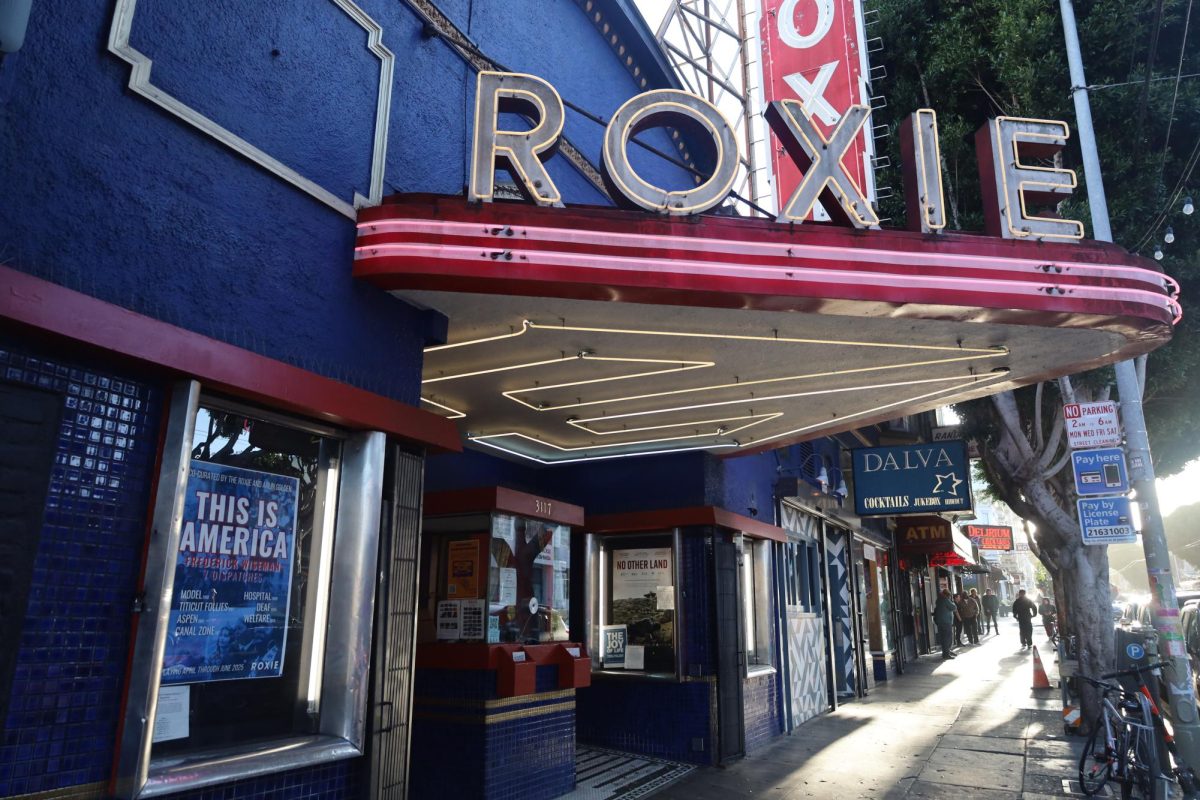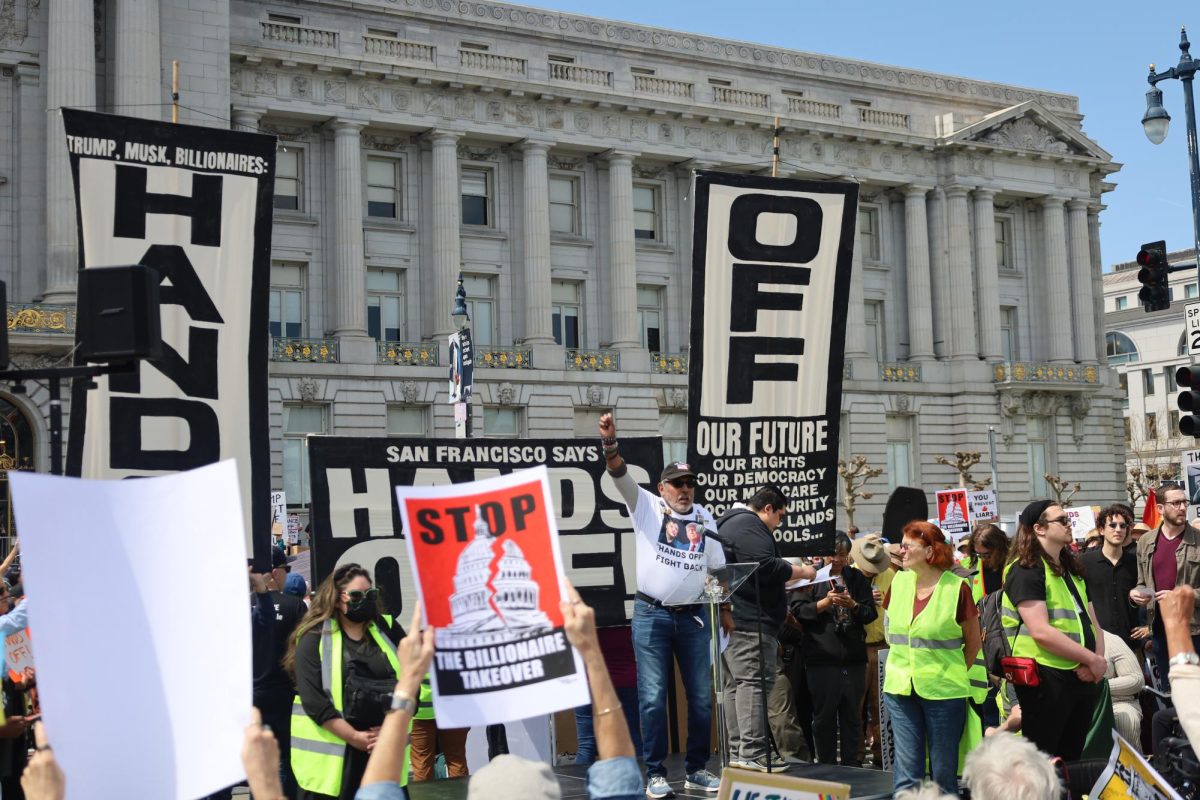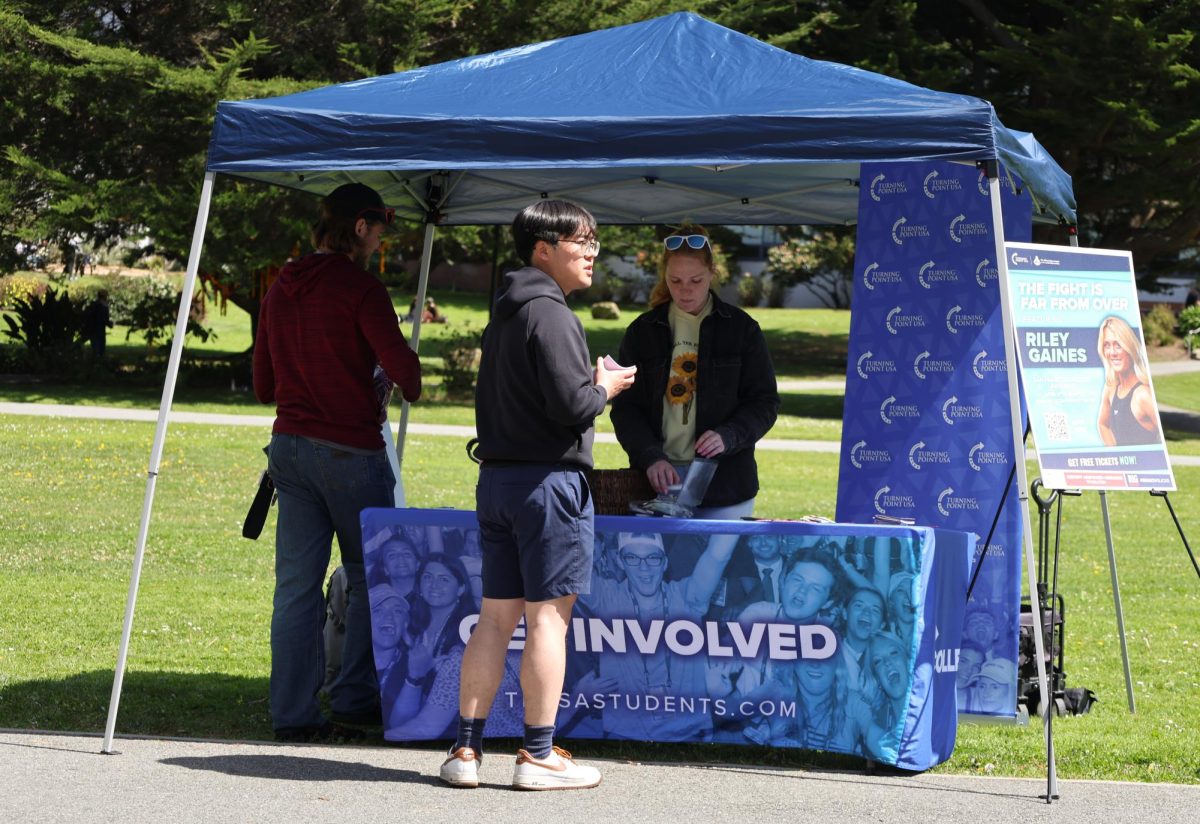SF State lecturer Jackie Fielder runs for State senate
Jackie Fielder poses inside the Mc Garden Coffee & Bakery. (Photo by Daniel Da Silveira / Golden Gate Xpress)
Feb 18, 2020
Jackie Fielder is many things, but a normal 25-year-old is not one of them. She is running for the 11th Senate district against Scott Weiner, an incumbent almost twice her age. She isn’t taking money from PACs, she’s lectured at SF State and has also been one of many who have felt the housing crunch and had to couch surf.
What’s pushed you to start your political career now?
“I’ve been organizing since I saw my relatives facing down the barrel of guns at Standing Rock. And that really, really pushed me to think seriously about what my commitment[s] to you know, basically fighting racial injustice and economic injustice look like.”
“I feel like life is really too short not to go for it. Whether that’s taking on gigantic corporations or just speaking the truth that I see in the world about you know, different injustices and inequalities.”
What are your views on housing?
One of Fielder’s goals is to have “development without displacement.” She wants to have buildings built for need and not for profit. “Market rate development in any given vicinity definitely lowers the rent for units around that are also market rate but they increase rents by 17% for low income units in the same vicinity”
“For thousands of people who once lived in San Francisco it already hit them. And now they live across the bay and commute two hours to work. Everyone knows that that’s a problem. We just disagree on how we got here and how we move forward.”
What is a public bank and why are you advocating for it?
“The only public banking existence is the Bank of North Dakota, they partner with credit unions and small banks. That’s why they have the highest per capita rate of credit unions per person anywhere in the country. And their job is basically to just expand the lending capacity of the region. We want the same for a San Francisco Public Bank.”
“It would be kind of like an infrastructure bank that piles on capital to credit unions and other small banks that have existing loans. We would of course, make sure that they fall in line with our priorities, whether that’s affordable housing, renewable energy, small businesses, or whatever else, but we want to make sure that we’re not financing anything destructive.”
The goals of the public bank are “To work in partnership with credit unions and smaller banks, not to compete with them. The idea is to be able to and this is with any load, to provide a lower interest rate than the Wall Street banks”
What is something you want to highlight about your campaign versus the incumbent?
“I’m not accepting contributions from the real estate lobby, from the charter school association, walmart, fossil fuel corporations. And I say this not because they want to donate to me, but my opponent has recently benefited from a PAC that is largely funded by Chevron, and Walmart, and the southern California Edison.
Who is funding your campaign?
“Our campaign is totally grassroots funded, or average contribution. It’s $100. And we’ve been able to surpass our expectations for this campaign. But my opponent has $1.7 million dollars already raised and much of that more before I put papers or even he papers for reelection.”
How have you been approaching your campaign so far?
“It’s getting up early a lot of times going to sleep late. But I love it. I love talking to people and being in different parts of the city it’s really, it’s really a lot of people have different opinions about how voters think and what certain communities think. But nothing beats actually talking to people and getting to know what they’re actually what’s on their mind.”
“I don’t have to tell people how bad it is. They know that. It’s really crazy right now. And we need someone who’s gonna stand up for more than five people. There are policies that people in office could implement right now, that would make all of our lives better. And they could implement universal rent control. They could choose to fund our schools and make them the best in the country. And they’re not because there are special interests who want to maximize on making sure that these goods are actually vehicles for profit maximization. And if we don’t have anyone looking out for working class people and just looking out for corporations we’re never going to be able to get out of this crazy system that that asks much of people and give so little back”




